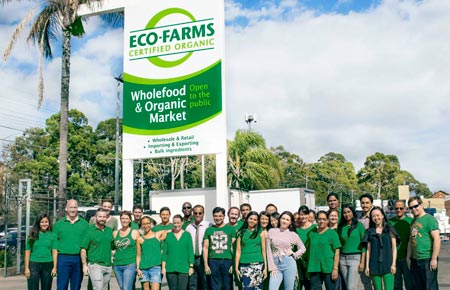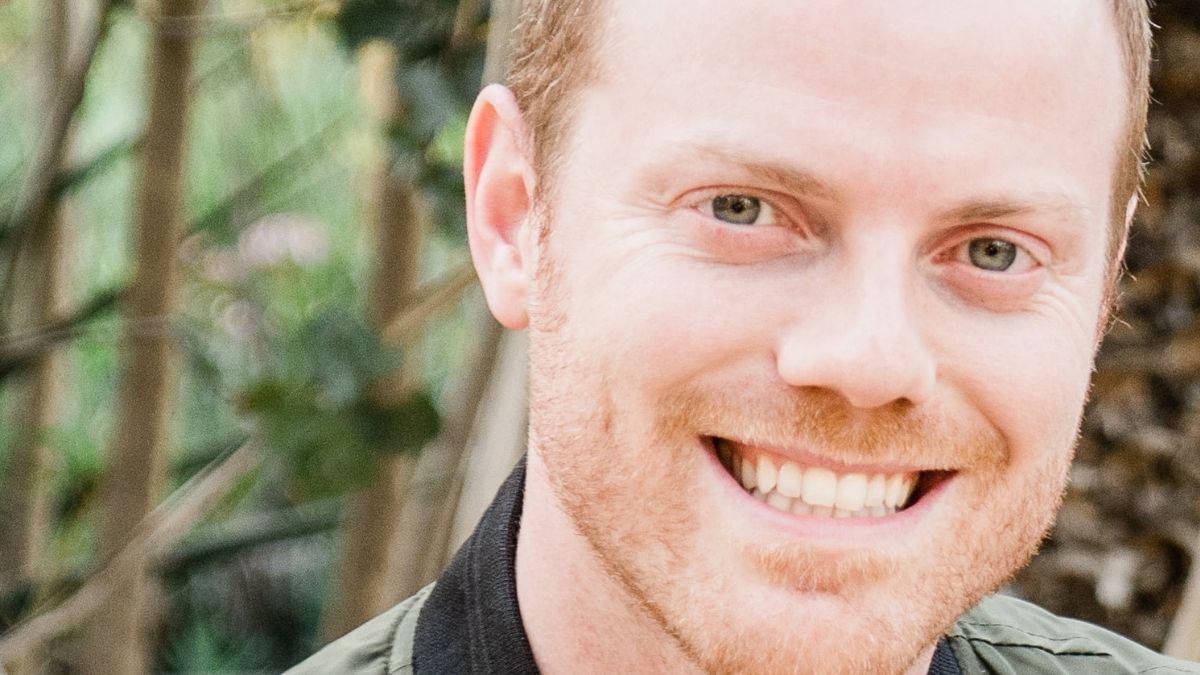How to Fuel Your Growth Without Burning Out Your Business
There’s a feeling in the life of a startup that is unlike any other. It’s a heady cocktail of exhilaration, adrenaline, and sheer terror. It’s the moment your business stops being a hopeful sapling and starts growing like a jungle vine—rapid, wild, and all-consuming.
This is the phase of hypergrowth. It’s the dream. It’s what you’ve been working towards. But it is also, paradoxically, the moment your business is most at risk. The very success you’ve created can become the force that tears your company apart if you are not prepared for it.
This led to one of the most important questions a founder can ever ask, and it was the central theme of a fantastic conversation I had on my podcast with Andrew, the founder of an incredible Australian invention in vertical farming. He is experiencing success, the orders are flowing, but he is facing the classic challenges of scale. His core question, which echoed with so many founder conversations I've had, was essentially this: "Am I growing too fast?"
This question is not a sign of fear; it is a sign of profound strategic wisdom. It’s the recognition that growth itself is not the goal. Sustainable, profitable, and manageable growth is the goal.
Our conversation was a deep, practical dive into the challenges of scaling. We talked about how to find talent when you’re a startup, how to fund the infrastructure you need to grow, the power of strategic partnerships, and the most critical question of all: where should a founder spend their most precious resource—their time?
Today, inspired by Andrew's innovative journey, I want to give you my definitive guide to managing the beautiful, chaotic process of scaling up.
The People Puzzle - How to Attract Talent When You Can't Compete on Salary
This is the first major hurdle of scaling. You need to grow your team, but you're competing for talent against large, established companies with deep pockets. You can't win a bidding war on salary. So how do you attract A-players to your team?
You don't compete on their terms. You compete on yours. You offer something the big corporations simply cannot.
1. Sell the Mission, Not Just the Job:
This is your greatest advantage. People don't just want a pay cheque anymore; they want to contribute to something that matters. Andrew's business isn't just about vertical farming; it's about food security, sustainability, and innovation. That is a mission! When you are interviewing, you should spend as much time talking about your "why" as you do about the role itself. You are not just hiring an employee; you are recruiting a believer.
2. Offer Ownership (in Every Sense of the Word):
- Psychological Ownership: In a large company, you are a cog in a machine. In a startup, you can give your early employees true ownership over a critical part of the business. Frame the role not as a list of tasks, but as a mission. "Your mission is to build our entire digital marketing engine from the ground up." This level of autonomy and impact is incredibly motivating for ambitious, entrepreneurial people.
- Financial Ownership: If you can, offer equity or an employee share option plan (ESOP). This is the ultimate way to align your team's success with the company's success. It allows them to share in the long-term value they are helping to create. It turns them from employees into partners.
3. Fish in Different Ponds:
Instead of just posting on the major job boards, look for talent where like-minded people gather. For a business like Andrew's, this could be:
- University agricultural science or sustainability programs.
- Online communities and forums dedicated to sustainable living or urban farming.
- Industry-specific meetups and events.
By going to where your tribe is, you find people who are already passionate about your mission before they even know about your job opening.
The Capital Question - Funding Infrastructure Without Giving Up the Farm
Hypergrowth requires investment. For Andrew, it's the physical infrastructure of his vertical farms. For another business, it might be technology or inventory. This often requires more cash than the business is generating. The traditional answer is to raise venture capital and sell equity, but as I’ve discussed many times, that is not the only way.
You need to explore non-dilutive funding options that allow you to finance your growth assets without giving up ownership.
- Asset Financing: For physical infrastructure like Andrew's, you can often get a loan specifically secured against the equipment itself. The bank's risk is tied to the asset, not the entire business, which can make it easier to secure.
- Government Grants and R&D Tax Incentives: An innovative, sustainable, Australian invention like Andrew's is exactly the kind of business that governments want to support. There are a huge number of grants and incentives available for businesses focused on R&D, innovation, and sustainability. It takes work to find and apply for them, but it is essentially "free money" that can be game-changing for a scaling business.
- Strategic Partnerships: Could a large corporate partner, perhaps a major supermarket or food distributor, help co-invest in the infrastructure in exchange for a long-term supply agreement? This brings me to the next point...
The Partnership Potential - Your Ultimate Growth Accelerator
During our conversation, we explored the immense potential of strategic partnerships for Andrew's business. For a startup, a single great partnership can be more powerful than a million-dollar marketing budget. It provides access, credibility, and resources you could never achieve on your own.
The key is to think about your business as part of a larger ecosystem. Who else is serving your end customer? Who has a problem that your business can solve?
- For Andrew's vertical farms: Potential partners could be restaurants wanting access to ultra-fresh, local produce; major grocery chains looking to improve their supply chain sustainability; or property developers wanting to integrate innovative green technology into their new buildings.
- The "Win-Win" Pitch: When you approach a potential partner, you must frame the proposal around how it benefits them. How does partnering with you help them achieve their goals, reduce their costs, or enhance their brand?
A great partnership is not a transaction; it's a true collaboration where 1 + 1 = 3.
The Founder's Focus - Your Time is Your Most Valuable Resource
This was the final, and perhaps most important, part of our conversation. As his business grows, Andrew is being pulled in a hundred different directions at once. I asked him about his superpower and where he, as the founder, needs to spend his time.
This is the critical evolution every scaling founder must make. You must transition from being the "Chief Doer" to the "Chief Decider." You have to ruthlessly protect your time and energy for the few, critical activities that only you can do.
I challenged Andrew to identify his unique "zone of genius." Is it the product vision? The technical innovation? The strategic relationship-building? Once you know your superpower, you must:
- Focus your time there: The majority of your week should be spent in your zone of genius. This is where you create the most value for the business.
- Aggressively delegate everything else: You must build a team and systems to handle all the other tasks that are outside your superpower. Your goal is to make yourself redundant from the day-to-day operations.
A founder who is still stuck answering basic customer service emails or managing the social media account is a founder who is actively holding their business back from its true potential.
An Inspiring Australian Success Story in the Making
Andrew's business is a fantastic example of the kind of innovation and determination that makes me so optimistic about the future of Australian business. He has a great concept, a clear passion, and most importantly, he is asking the right questions.
Our full conversation on the podcast is a real-time, high-energy strategy session. It's a look under the bonnet of a fast-growing company at a critical moment, and the lessons are applicable to any founder who is grappling with the challenges and opportunities of success.
Growth is a Tiger You Must Learn to Ride
Scaling a startup is a wild and exhilarating ride. It requires a fundamental shift in your role as a founder. You must evolve from a doer to a leader, from a generalist to a visionary.
You must become a master at attracting people who are drawn to your mission. You must be creative and strategic in how you fund your growth. And you must be disciplined and ruthless in how you invest your own time and energy.
The challenges of growth are not a sign that you are failing; they are a sign that you are succeeding. And by asking the right questions and focusing on building a sustainable, scalable foundation, you can learn to ride the tiger of hypergrowth without getting eaten.
What has been the biggest challenge you have faced in scaling your own business?
Frequently Asked Questions on Am I Growing Too Fast?
1. What is the key indicator that a business's growth is becoming unsustainable or "too fast"?
The key indicator is when complexity starts outpacing control, leading to a sharp erosion of profitability or customer experience. It's often masked by high revenue growth, but the danger signals are a steep rise in Cost of Customer Acquisition (CoCA), a drop in employee retention (burnout), or a failure in operational systems to handle the increased volume. Sustainable growth is profitable growth, and the numbers never lie.
2. What are the top three strategic controls a leader must implement to manage rapid growth sustainably?
The top three strategic controls are: 1. Unambiguous Clarity: A crystal-clear, one-page strategy to align all resources. 2. Rigorous Systems: Documented and tested processes that reduce reliance on individual heroics. 3. Financial Discipline: A keen understanding of cash flow and CoCA to ensure every sales dollar contributes to net profitability, preventing the company from "growing broke."
3. How does the 'founder's passion' become a risk when growth accelerates too quickly?
The founder's passion becomes a risk when it overrides objective data and strategic advice. Rapid growth can feed the ego, leading the founder to believe their intuition is infallible. This can cause them to ignore crucial market signals, over-invest in non-core activities, and fail to delegate to professionals. The ultimate act of self-management is using passion as fuel, but grounding decisions in data and the expertise of a strong board.
4. Why is the composition of the board crucial for navigating a phase of extreme rapid growth?
The board's composition is crucial because extreme growth requires both acceleration and rigorous governance. A well-composed board brings diverse expertise (e.g., technology, finance, legal) to identify risks the founder might miss. Their role is to challenge the pace of growth, ensure capital is invested with leverage, and hold management accountable for embedding scalable systems, preventing growth from devolving into chaos.
5. What advice do you have for a leader who suspects they might be experiencing unsustainable growth?
If you suspect unsustainable growth, you must immediately adopt a 'Less is More' philosophy. Pause and audit your systems. Focus ruthlessly on core profitability and simplify your operations. Use your resources to stabilize your core value delivery and ensure your Cost of Customer Acquisition is healthy. You must be strategically humble enough to temporarily slow down growth to build the robust structure needed for long-term endurance.






